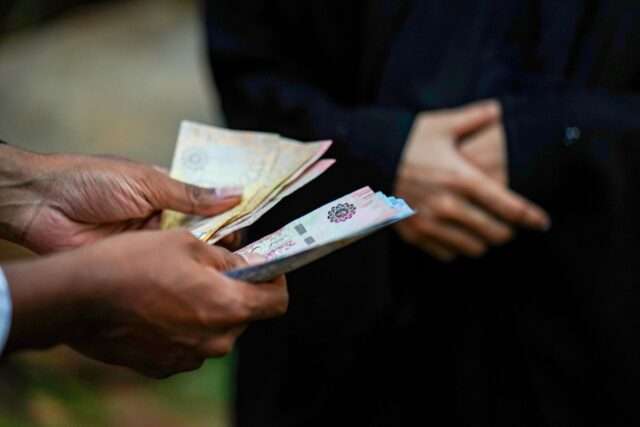Islamic Banking in Russia: Why Does It Matter?

Kavkaz Files ISSN 2975-0474 Volume 15 Issue 1
Author: Giuliano Bifolchi
The Kremlin’s project to evaluate the opportunity to implement Islamic banking in Russia might support the national economy, attract foreign investors from the Arab-Muslim world, and counter the consequences of Western sanctions imposed against Moscow due to the Ukraine conflict.
- Islamic banking in Russia might attract foreign investors from the Arab-Muslim world and business people who will contribute to local infrastructural development projects in the Russian territory.
- Since the beginning of the Ukraine conflict, the Russian Federation has adopted a foreign policy aimed at expanding diplomatic and economic relations with the Middle East and the Arab-Muslim world.
- Islamic banking in Russia might strengthen the local economy in those regions and federal territories where most Russian Muslims live.
Background
In August 2022, the Central Bank of Russia said it would launch a pilot project on Islamic banking in Chechnya and Dagestan. In September 2022, the State Duma approved the first reading of the draft law on the pilot implementation of Islamic banking in Chechnya, Dagestan, Tatarstan, and Bashkortostan.
Islam is the nation’s second most widely professed religion in the Russian Federation. According to official data and a nationwide survey, the number of Muslims in Russia is approximately 20 million. In the capital, Moscow, there are four mosques, while in the entire country, the number of mosques is around 8 thousand. Russian President Vladimir Putin stated that Russia is a Muslim country which sits as an Observer State in the Organisation of Islamic Cooperation, and traditional Islam is an essential part of the country’s spiritual life.
There are over 1500 Islamic financial institutions worldwide across 80 countries. Between 2012 and 2019, Islamic financial assets grew from $1.7 trillion to $2.8 trillion and are projected to grow to nearly $3.7 trillion by 2024, according to a 2020 report by the Islamic Corporation for the Development of Private Sector (ICD) and Refinitiv. This growth is mainly due to the rising economies of Muslim countries (especially those that have benefited from oil price increases).
A few days ago, Russian President Vladimir Putin signed the presidential decree for the organisation of the International Economic Forum “Russia – Islamic World: KazanForum“, which will be held annually in Kazan on May 18-20, 2023. According to Russian official sources, the forum will promote international cooperation between Russia and the Arab-Muslim world.
Why the Islamic Banking in Russia,
Especially in the North Caucasus, Does It Matter?
Although this is not the country’s first attempt to introduce this banking method, due to the Western economic sanctions against Russia, this time, the Kremlin might seriously support Islamic banking in the country as a geopolitical means. Thanks to Islamic banking, Russia might attract the interest of Muslim countries and investors, especially the Gulf Arab monarchies.
Among the Gulf Arab countries, the United Arab Emirates has shown a great interest in expanding trade and relations with the Russian Federation, particularly in the North Caucasus. Indeed, recently, Russian President Vladimir Putin discussed with UAE President Mohammed Al Nahyan the situation related to the Ukraine conflict and what the Kremlin considers the West’s attempts to impose a ceiling on oil prices from Russia. In this context, it should be noted that in September 2022, the Embassy of the United Arab Emirates in the Russian Federation organised an event in Makhachkala to promote the national culture and create a link with Dagestan.
In the North Caucasus, Chechnya has played a decisive role in promoting Russian relations with the Arab-Muslim world for years. Therefore, implementing the Islamic banking project in the country might confirm Grozny’s role as a strategic connection between Russia and the Middle East. In the region, in the last few years, Dagestan has emerged as a logistic and industrial hub in the Caspian Sea basin thanks to the Kremlin’s financial support to expand local infrastructures such as the Makhachkala Sea Trade Port.
If in Chechnya and Dagestan Islamic banking might attract investments from abroad and increase local standard living conditions, in Tatarstan and Bashkortostan confirms how strategic are these two republics in the Kremlin’s foreign policy in the Arab-Muslim world, especially in Central Asia and the Middle East.
Do you like SpecialEurasia reports and analyses? Has our groundbreaking research empowered you or your team? Now is your chance to be a part of our mission! Join us in advancing independent reporting and unlocking the secrets of Eurasia’s complex geopolitical landscape. Whether through a one-time contribution or a monthly/yearly donation, your support will fuel our relentless pursuit of knowledge and understanding. Together, let’s pave the way for a brighter future. DONATE NOW and secure your place in shaping the geopolitical narrative.
